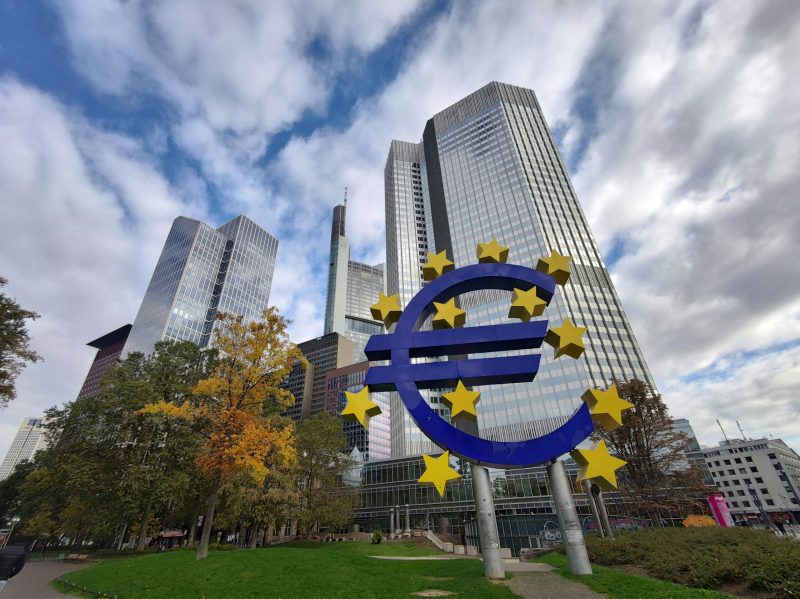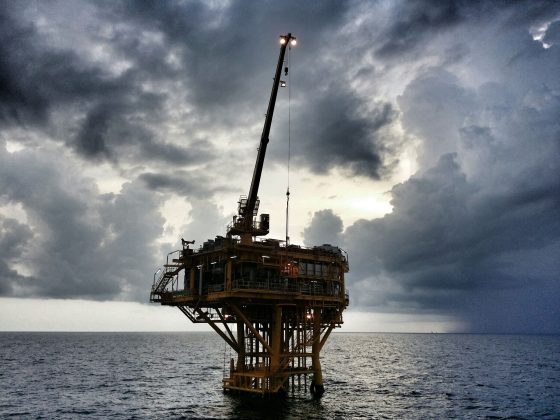The eurozone economy is grappling with a growing set of challenges, from declining industrial output to rising global trade tensions.
Industrial production is contracting, growth forecasts are being downgraded, and the region’s largest economy is struggling to keep pace with global competitors.
Add to this the spectre of US trade protectionism, and the stakes for Europe’s economic future couldn’t be higher.
Despite record-low unemployment and easing inflation, the road to recovery remains uncertain.
Should Europeans worry about falling behind the rest of the world?
What is causing the industrial slump?
According to Eurostat, eurozone industrial production fell by 2.0% in September, marking one of the sharpest monthly declines in recent years.
The contraction was felt across key sectors, with capital goods and energy production suffering the largest losses.
Compared to a year earlier, industrial output is down 2.8%, emphasizing the depth of the recession in the sector.
High energy costs have been a persistent burden, particularly for energy-intensive industries.
Geopolitical tensions, including the war in Ukraine, have disrupted supply chains and kept prices elevated.
Meanwhile, weak demand from China has compounded these problems, especially for the eurozone’s struggling automotive sector, which has seen global sales falter.
The structural issues in the industrial sector highlight a larger problem: the eurozone’s heavy reliance on external demand.
As global economic conditions weaken, the region’s dependence on exports leaves it exposed to external shocks.
How is Germany driving the downturn?
Germany, the eurozone’s economic engine, is at the heart of its industrial decline.
In September, German industrial production contracted by 2.7%, the steepest fall among major eurozone economies.
Forecasts for Germany’s economic growth are bleak, with a predicted contraction of 0.1% in 2024 and only 0.7% growth in 2025.
Several factors contribute to this underperformance.
Germany’s manufacturing sector, particularly its automotive and machinery industries, faces stiff competition from foreign rivals.
Labour shortages in the construction sector further exacerbate the country’s economic woes.
Additionally, geopolitical uncertainty has weighed heavily on investor confidence, stalling critical industrial projects.
Political instability is another challenge.
Following the resignation of coalition partners, Chancellor Olaf Scholz has called early elections for February 2025.
This political turmoil adds uncertainty at a time when Germany’s economy desperately needs clear and decisive leadership.
Is inflation under control?
After peaking at 9.2% in 2022, eurozone inflation is expected to decline to 2.4% in 2025 and reach the European Central Bank’s target of 2.0% by the fourth quarter of that year.
Falling energy and food prices have been the primary drivers of this disinflationary trend.
While this offers some relief to households and businesses, it hasn’t translated into a robust recovery in consumer spending.
Despite record-low unemployment at 5.9%, households are saving more than expected, reflecting a relatively pessimistic behaviour due to economic uncertainty.
This restrained spending has slowed the eurozone’s consumption-driven growth, which has traditionally been a key driver of its GDP.
What are the risks of a trade war?
The eurozone’s open economy makes it highly sensitive to global trade policies, and the prospect of US tariffs keeps growing.
President-elect Donald Trump has pledged to impose 10% tariffs on imports, including those from the EU.
With €850 billion ($898 billion) worth of goods traded annually between the two economies, the impact could be severe.
Germany, whose economy heavily relies on exports, is particularly vulnerable.
The Bundesbank estimates that these tariffs could shave 1.0% off Germany’s GDP, compounding its existing struggles.
EU officials have warned that a rise in protectionist policies could disrupt global trade and further weaken the eurozone’s already fragile recovery.
Are there any bright spots?
Not all eurozone countries are facing the same level of difficulty. Spain stands out as a success story, with GDP expected to grow by 3.0% in 2024 and 2.3% in 2025.
Strong tourism and government-led investment initiatives have driven its robust performance.
Italy and France are also seeing modest improvements.
Italy’s growth is forecasted to increase from 0.7% in 2024 to 1.0% in 2025, while France continues to struggle with fiscal challenges but remains on a path of gradual recovery.
Lower inflation and improving credit conditions are expected to support investment growth across the region, offering a glimmer of hope.
What does the future hold for Europe?
The eurozone’s recovery depends on addressing its structural vulnerabilities.
High energy costs, weak industrial demand, and geopolitical tensions remain significant challenges.
The region’s reliance on global trade makes it particularly exposed to shifts in US trade policy, especially with proposed tariffs threatening key export sectors.
Structural reforms are needed to boost competitiveness, reduce energy costs, and foster domestic demand.
While lower inflation and improving investment conditions provide reasons for optimism, the eurozone’s path to sustained growth will depend on its ability to adapt to both internal and external pressures.
The post Why is the eurozone falling behind in the global economy scorecard? appeared first on Invezz


